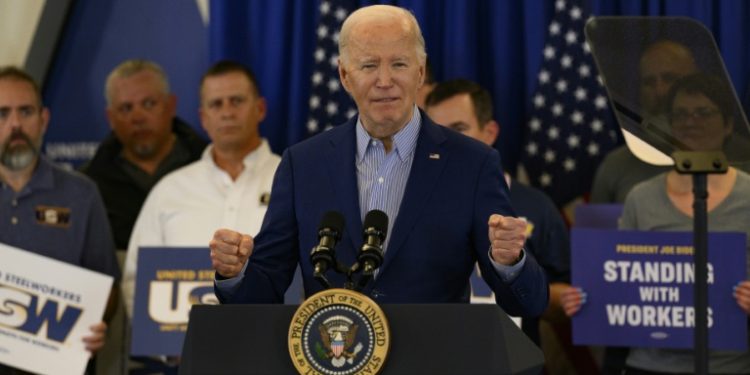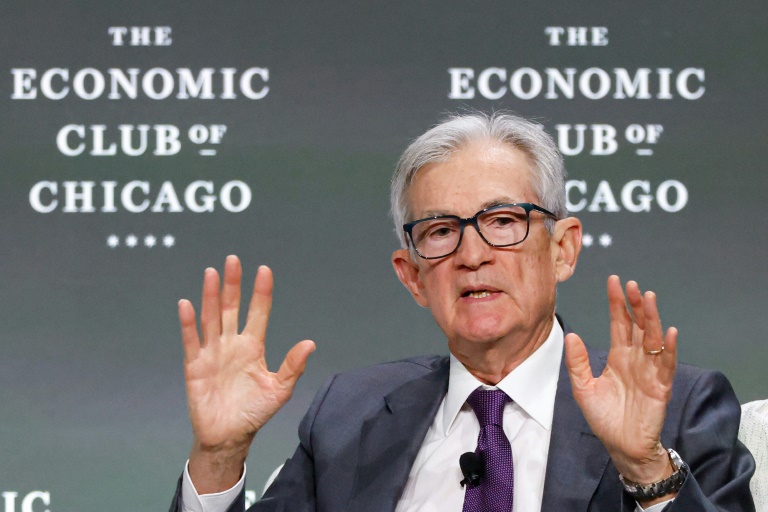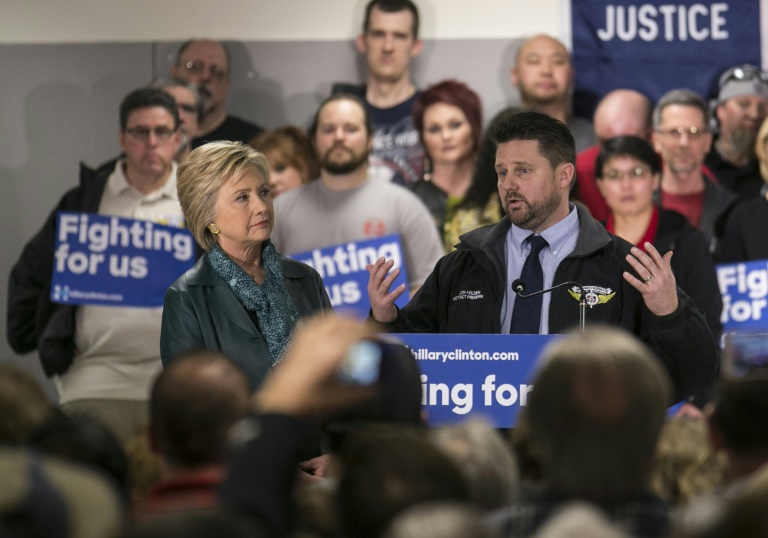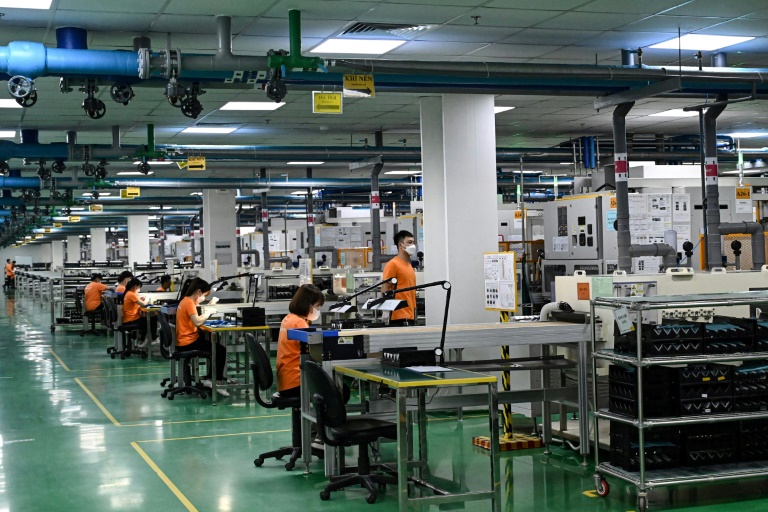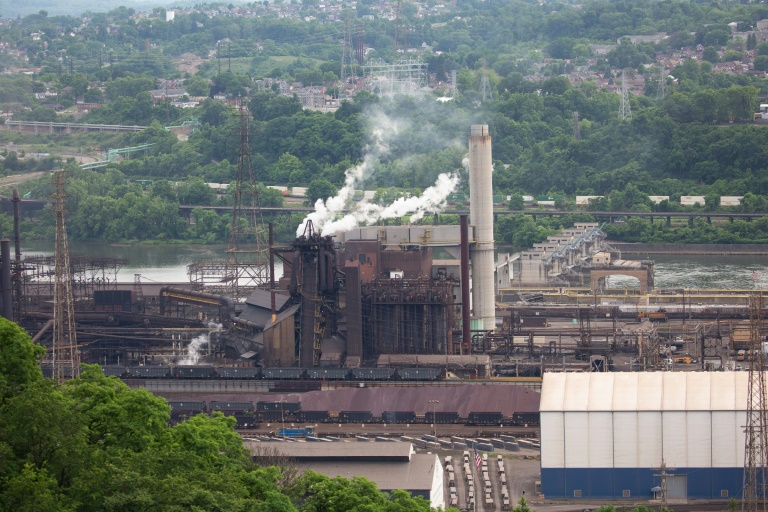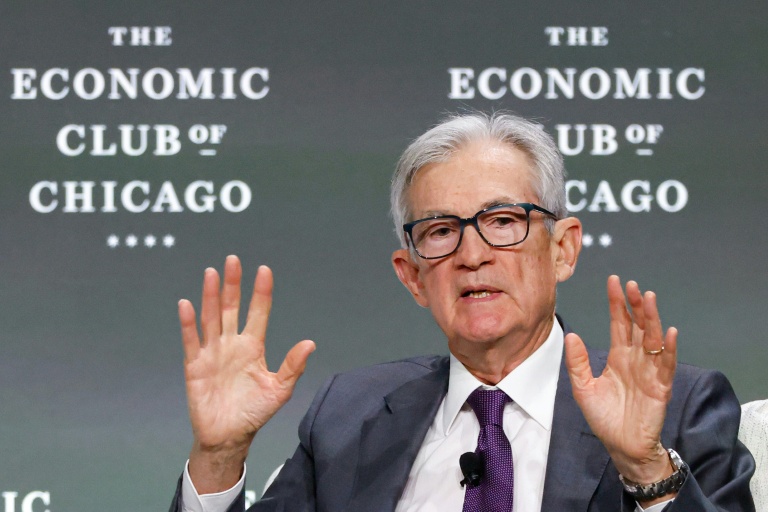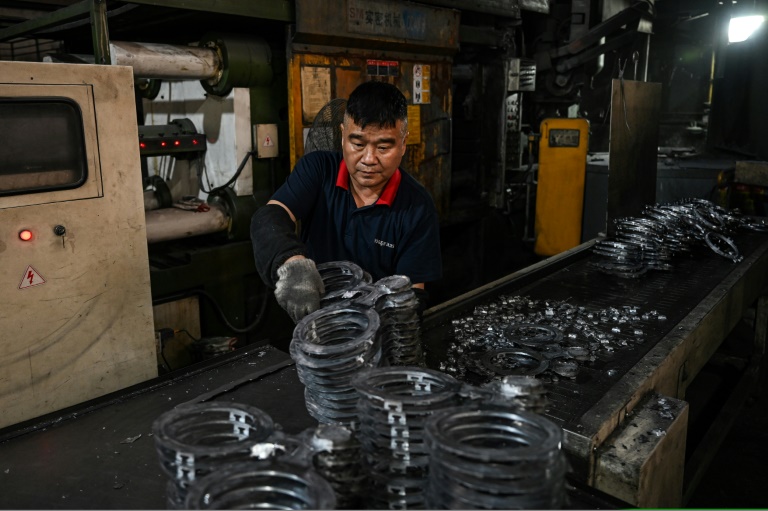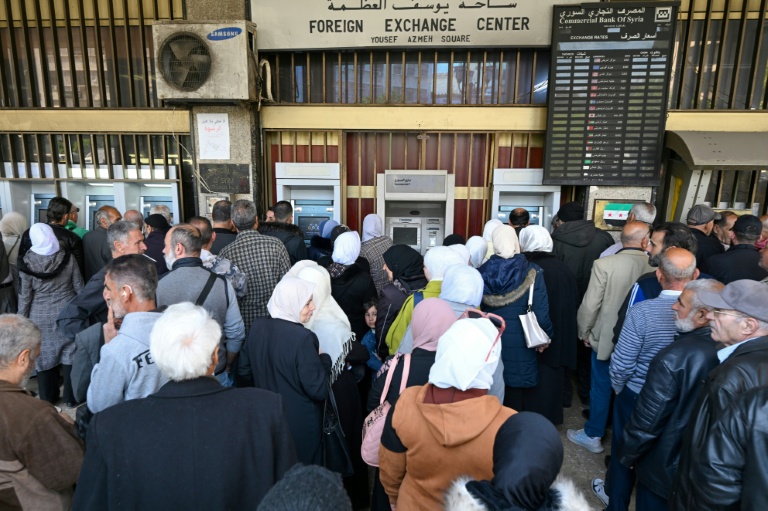Pittsburgh (AFP) – Working class voters in Rust Belt cities like Pittsburgh used to favor Democrats overwhelmingly, but years of economic hardship and the rise of social issues favoring Republicans have made them a swing constituency again in 2024.
President Joe Biden has cleared one key hurdle, winning endorsements from union presidents, including the United Steelworkers (USW), a key player in the US Steel takeover battle that has loomed over the 2024 campaign in Pennsylvania.
But just how many rank-and-file workers ignore union chiefs and vote for Donald Trump could have a decisive impact in Pennsylvania, Michigan and Wisconsin, where the margin could be 100,000 votes or fewer.
Biden backers point to the incumbent’s reliable support of organized labor, links to working-class Scranton, Pennsylvania and legislative accomplishments like the 2021 infrastructure law.
“We listened to four years of Donald Trump talking about infrastructure, because there was a lot of lip service,” said steelworker JoJo Burgess in a Biden ad.
“Joe Biden delivered on it.”
“Right now, we have the most pro American worker president in office that we’ve ever had,” said Burgess, who is also mayor of Washington, Pennsylvania.
But Rudy Sanetta, a maintenance worker at US Steel, prefers Trump on the economy and because of his stance on gun rights. “I like him for his resistance to the politicians,” Sanetta said of Trump.
“The other guy, I have no confidence.”
Working class voters “are the most pivotal because they’re the ones who have actually demonstrated that they’re willing to select either Trump or Biden,” said Jonathan Cervas, a political scientist at Carnegie Mellon University in Pittsburgh.
Exit polling from Michigan, Wisconsin and Pennsylvania in 2020 suggests the swing to Biden of white working class voters who favored Trump in 2016 “significantly influenced the difference between winning and losing,” according to a May paper by progressive political consultant Mike Lux Media and the organized labor-backed group In Union.
But the paper pointed to recent polling that showed a drop in Biden’s support among union households in Wisconsin and Michigan, while Pennsylvania was unchanged from 2020.
“Democrats need to understand that these working-class Heartland voters have been through a lot of tough times over the last few decades,” said the paper, which urged early outreach from trusted sources that connects with voters’ “real-life experience to counter digital misinformation and social pressure.”
– Eroding support –
Since Trump’s political emergence, there has been considerable debate about the different reasons for the erosion of white working-class support for Democrats. Some commentators view Trump’s 2016 upset as at least partly a racial backlash after the presidency of Barack Obama and Trump’s embrace of issues like illegal immigration.
Other commentators, like Ruy Teixeira of the American Enterprise Institute, have called the Democratic Party’s progressive positions on issues like police reform and transgender rights alienating to voters who are more culturally conservative.
The 2023 book “Rust Belt Union Blues,” a case study of the Pittsburgh region, points to the after-effects of the 1970s and 1980s industrial downturn that led to huge job losses and shuttered union halls, weakening labor’s bargaining hand with companies.
The downturn also diminished the community role of unions, which once held picnics and other gatherings where members would don colorful pins promoting their locals; this contributed to a solidarity oriented around issues like fair wages and health care.
While unions still hold some activities, many workers who survived industry downsizings now socialize around religion and hunting, where politically-oriented groups lean conservative, according to authors Lainey Newman and Theda Skocpol.
– Pocketbook issues –
Bernie Hall, who leads the USW Pennsylvania district, agreed that many union members have varied affiliations, but said work remains central.
“Especially in western Pennsylvania, you know people really identify with the union,” he said.
Hall, who praised Biden as a “blue-collar” Democrat who has delivered for voters, predicted Biden would win a majority of steelworkers, but acknowledged that Trump holds considerable support.
Some workers turned to Trump after decades of industrial decline to “blow up” the system, Hall said, adding, “I still think there’s an appeal to that for some people.”
Alex Barna, a machinist at US Steel, was a lifelong Democrat who voted for Obama.
But since 2016, Barna has voted for Trump twice and will do so again, crediting the former president’s tax cuts with a good economy before Covid-19. “What affected us was the pocketbook and the pocketbook” was good, said Barna’s wife, Helen, contrasting it with today’s higher inflation.
“A lot of people think of the four years of the mean tweets,” said Helen Barna.
“At least we lived better.”
© 2024 AFP

